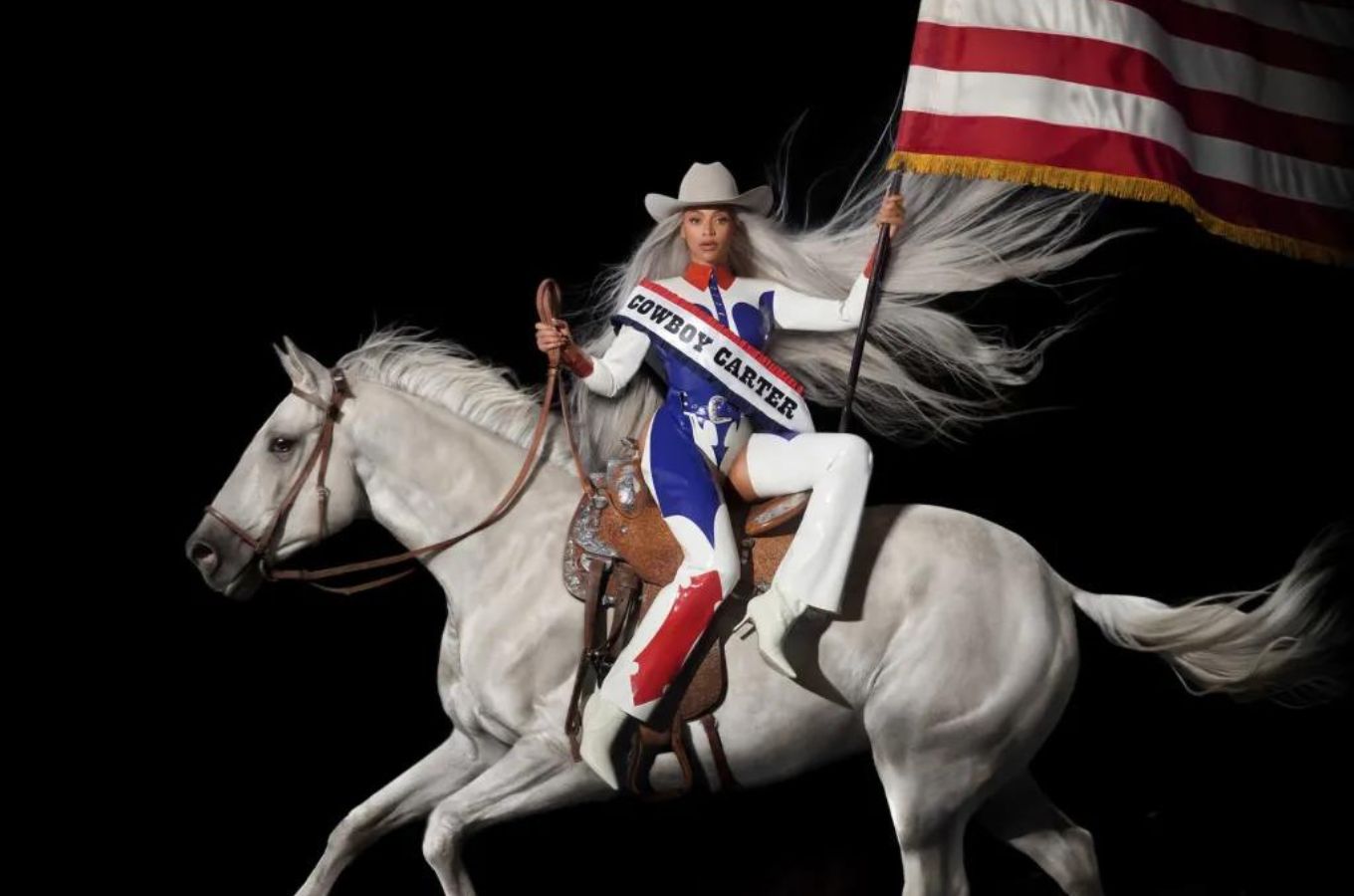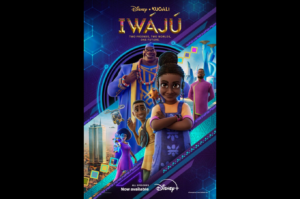
Beyoncé’s recent Album Cowboy Carter has raised questions about the politics and practice of genre. Can a black woman with deep roots in R&B, pop, and hip-hop make country music? With a repertoire of influences ranging from opera and Led Zepplin to Black folk music and trap beats, is Cowboy Carter even country music? As many music experts have noted, the album is difficult to categorize. But it looks like Beyoncé anticipated these debates because in the album itself, she addresses the issue of genre in two monologues featuring Linda Martell, one of the first Black female country singers to achieve considerable success in the genre.
In the intro for the song “Spaghetii,” a song in which Beyonce raps alongside Nigerian country/rap artist Shaboozey, Linda Martell says: “Genres are a funny little concept, aren’t they? In theory, they have a simple definition that’s easy to understand. But in practice, well, some may feel confined.” In another skit right before “Ya ya,” a song that sounds more like a Tina Turner number than classic country, Martell comes on again to say: “This particular tune stretches across a range of genres and that’s what makes it a unique listening experience. Yes indeed.” These two statements, though brief, are deeply layered and explain a lot about how genres work and why they can both be confining and freeing.
Genre is an issue that plays an important role in literature as well. African writers, particularly, have had to contend with the complications of genre. In the early 20th century, as African writers experimented with the novel— an imported genre—they grappled with the complexities of fusing the novel with influences from an array of African indigenous storytelling styles as well as global trends. Authors like Thomas Mofolo and D. O. Fagunwa helped kickstart a culture of experimentation with genre that has, over the decades, kept African fiction evolving while developing distinct features. As Jennifer Makumbi is reported to have said: “The African novel is going to do its thing. You can’t impose form on it. The European novel should obey the laws it created. The African novel does whatever it wants.” Today, African writers are at the forefront of innovation with genre in ways that can be illuminated by Beyonce’s attempt to grapple the problem.
Let’s start with Martell’s statement: “Genres are a funny little concept, aren’t they? In theory, they have a simple definition that’s easy to understand.” Genres are easy to understand because of how intuitive they are to the way we navigate the world. They do many things but one of the most common uses of genre is to categorize. The word genre comes to English from Latin and French. In both cases the root words refer to type, kind, class, family, etc. As such, genres help us sort writing into broad types based on form, style, content, purpose, etc. governed by rules that can be either implicit or explicit. As such, they are helpful for readers, writers, and whoever else needs to navigate the chaos of books and ideas. For instance, when you walk into a bookstore and head straight to the poetry section, you’re using the simplicity of genres to navigate. In a world where life depends on being able to sort things into categories something like genre is important. Genre also has something to do with how we enjoy books. Readers who want to read a romance, expect to have a happy ending, which is one of the key markers of the genre. So genres are important for how they manage readers expectations of what they are going to get when they read a book. There is a kind of pleasure that comes from reading a book that follows the rules of form, books that give us what we expect, with the right notes in the right places.
While Martell highlights the ease and comfort of genres, she also issues a caution. “In practice, well, some may feel confined.” Genres can be restrictive, both for the artist bound by conventions and the reader who gets stuck reading the same thing over and over again and not having the option to branch out. And here’s an interesting observation, perhaps explaining why Martell describes genres as “funny.” Genres, while confining, are made up of rules that are meant to be broken. They establish the framework for the art we appreciate, yet they depend on us to challenge their limits in order for them to evolve.
In African literature, some authors have done this in several ways. There are those who are okay with simply playing with the boundaries of genre, pushing things just enough to create a story that does things differently. Chimamanda Adichie, loved for her straightforward realist fiction, ventures a bit beyond these confines in Americanah (2013) where she incorporates blog posts. Caleb Azuma Nelson’s Small World (2023) is a classic coming-of-age story infused with so much musical elements and other sensory details that reading the novel is immersive.Stephen Buoro’sThe Five Sorrowful Mysteries of Andy Africa (2023) also falls into this category of books that subtly bend genres to offer something refreshing. He uses mathematics and philosophy to tell a story of a teenager bent on making sense of large-scale African issues. This approach to genre—as a set of writing guidelines to either follow closely or break slightly—keeps literature exciting.
African writers have long been at the forefront of challenging the confines of the classic European novel, often to the point of dismantling traditional rules of novel writing. There are African writers who see genre as rules that are meant to be entirely broken. Amos Tutuola, the Nigerian fantasist, is a good example. His debul novel The Palm-Wine Drinkard (1952) shows that you can tell a story by not telling a story—in other words, by stringing together moments of intense sensorial experiences instead of following the arc of a character’s evolution. Ghana’s Kojo Laing does unimaginable things with the English language in Woman of the Aeroplanes (1988). Ama Ata Aidoo’s Our Sister Killjoy (1977) blends poetry and fiction to expose the unspeakable heart of colonial violence, a style that a writer like Saffia Elhillo in Home is Not a Country (2021) would later emulate. Ben Okri, at the close of the 20th century, pioneered a new method of crafting expansive, disorienting fictional worlds where characters navigate the thin line between the world of the living and the Other world. Writers like Akwaeke Emezi in Freshwater (2018) and Unathi Slasha in Jar Hills (2017) have gone on to follow his lead. Reading Angola’s José Eduardo Agualusa in The Book of Chameleons, Kenya’s Khadija Abdalla Bajaber in House of Rust (2021) and Okwirri Oduor in Things They Lost, (2022) you are forced to rethink everything you thought you knew about magical realism.
When Linda Martell says in the lead up to the song “Ya ya” that “This particular tune stretches across a range of genres and that’s what makes it a unique listening experience,” she is pointing to another way that genre might serve the artist who wants to truly create something new. In other words, genre guidelines are not there simply to be followed or broken. Some African writers use genres by blending them in ways that create something “unique.” There is Namwali Serpell, who in The Old Drift (2019), combines sci-fi, fantasy, historical fiction, and family saga, among others to create a reading experience that is both disorienting and immersive. Glory (2022) by Noviolet Bulawayo is an animal tale that addresses the aftermaths of President Mugabe’s regime by weaving together African fables and elements from George Orwell’s Animal Farm narrated in vignettes and twitter conversations. The use of humor, Ndebele phrases, unconventional elements like sub-headings, and made-up words produces a truly magical experience. If An Egyptian Cannot Speak English (2022) by Noor Naga is another novel that offers a unique reading experience by mixing various elements. The novel is structured as a collection of fragments, each beginning with a koan—a genre in Buddhist thought that takes the form of short saying or question designed to provoke deep reflection. What of Adichie’s Dear Ijeawele (2017)? One of the most underrated, most experimental texts in 21st African literature. It is a Facebook post in the form of an email, written as a guide and presented as a manifesto, comprising of suggestions for raising a feminist daughter.
Genre is political. In the statement “In theory, they have a simple definition that’s easy to understand. But in practice, well, some may feel confined,” Martell suggests something that is so subtle it is easy to miss. The reference to “some may feel confined” suggests that not everyone will feel confined in relation to a particular genre in the same way. The example of Beyoncé feeling unwelcome in the country music space illustrates how genre can serve as a tool for restricting some people from participating, especially in cases where a genre is tied to cultural, national, or ethnic identities. Some who perceive country music as white music might feel that as a black woman known for R&B/hip hop, Beyonce is overstepping some kind of boundary.
This type of exclusion is precisely what experimentation with genre is there to dismantle. Historically, African writers venturing into science fiction–often associated with Euro-American literature– have faced skepticism from both the African literary establishment and the wider sci-fi community. Nnedi Okorafor’s experience with the infamous Sad Puppies in connection to the Hugo Awards is a case in point. Notwithstanding, there has been a rise in African science fiction. African writers are integrating indigenous deities, cosmological concepts, and imagery with traditional sci-fi elements. Sci-fi classics like Okorafor’s Lagoon (2014), Dilman Dila’s A Killing in the Sun (2014), Lauren Beukes’ Zoo City (2011) but also new ones like Wole Talabi’s Shigidi (2023) and Mazi Nwonwu’s How to Make a Space Masquerade (2024) exemplify the success of the trend. Along with the rest of African fiction, these novels show that ultimately genres are opportunities for creative exploration that not only lead to new narrative possibilities but also open up new markets.








COMMENTS -
Reader Interactions